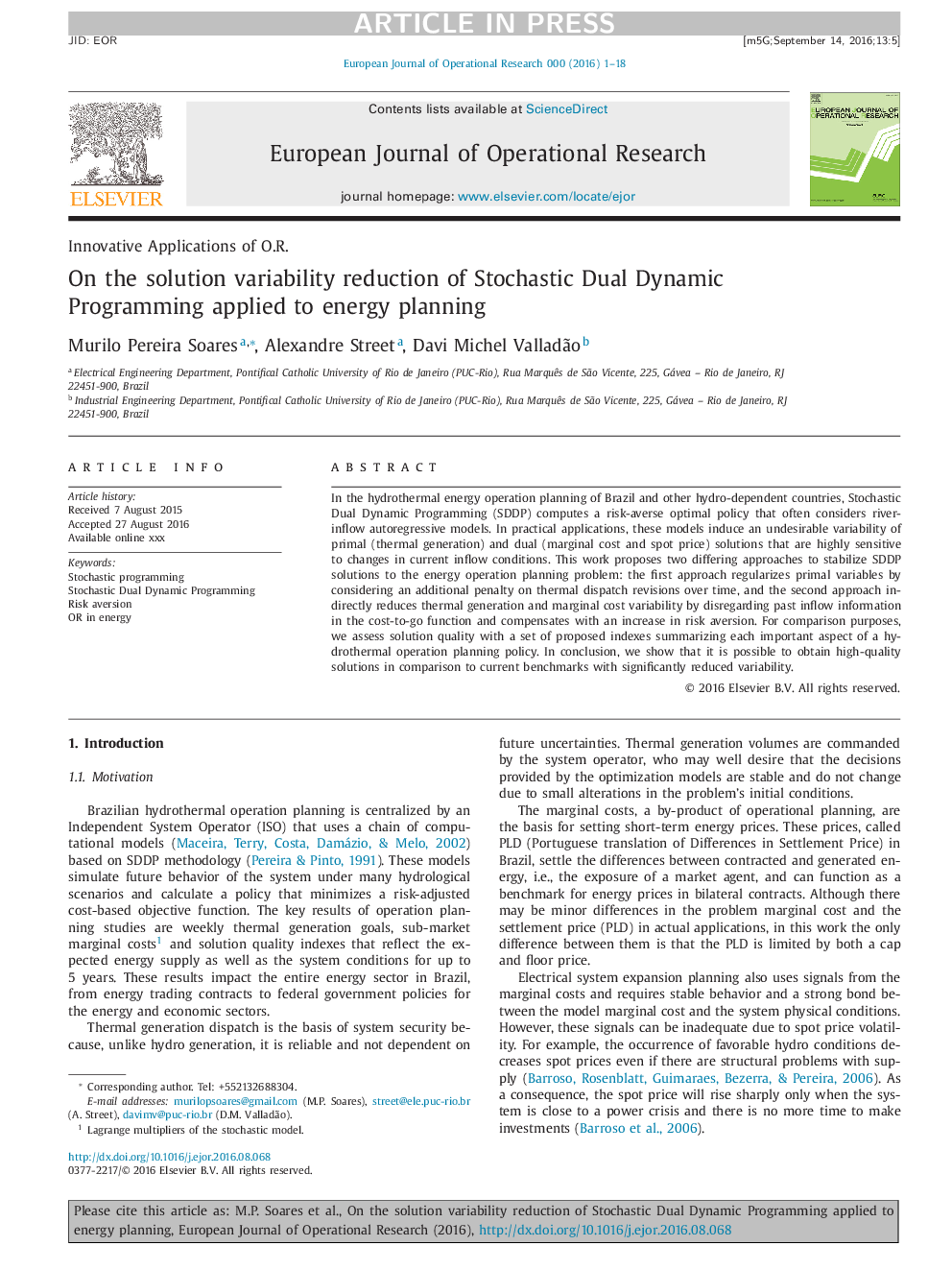| Article ID | Journal | Published Year | Pages | File Type |
|---|---|---|---|---|
| 4960011 | European Journal of Operational Research | 2017 | 18 Pages |
Abstract
In the hydrothermal energy operation planning of Brazil and other hydro-dependent countries, Stochastic Dual Dynamic Programming (SDDP) computes a risk-averse optimal policy that often considers river-inflow autoregressive models. In practical applications, these models induce an undesirable variability of primal (thermal generation) and dual (marginal cost and spot price) solutions that are highly sensitive to changes in current inflow conditions. This work proposes two differing approaches to stabilize SDDP solutions to the energy operation planning problem: the first approach regularizes primal variables by considering an additional penalty on thermal dispatch revisions over time, and the second approach indirectly reduces thermal generation and marginal cost variability by disregarding past inflow information in the cost-to-go function and compensates with an increase in risk aversion. For comparison purposes, we assess solution quality with a set of proposed indexes summarizing each important aspect of a hydrothermal operation planning policy. In conclusion, we show that it is possible to obtain high-quality solutions in comparison to current benchmarks with significantly reduced variability.
Related Topics
Physical Sciences and Engineering
Computer Science
Computer Science (General)
Authors
Murilo Pereira Soares, Alexandre Street, Davi Michel Valladão,
